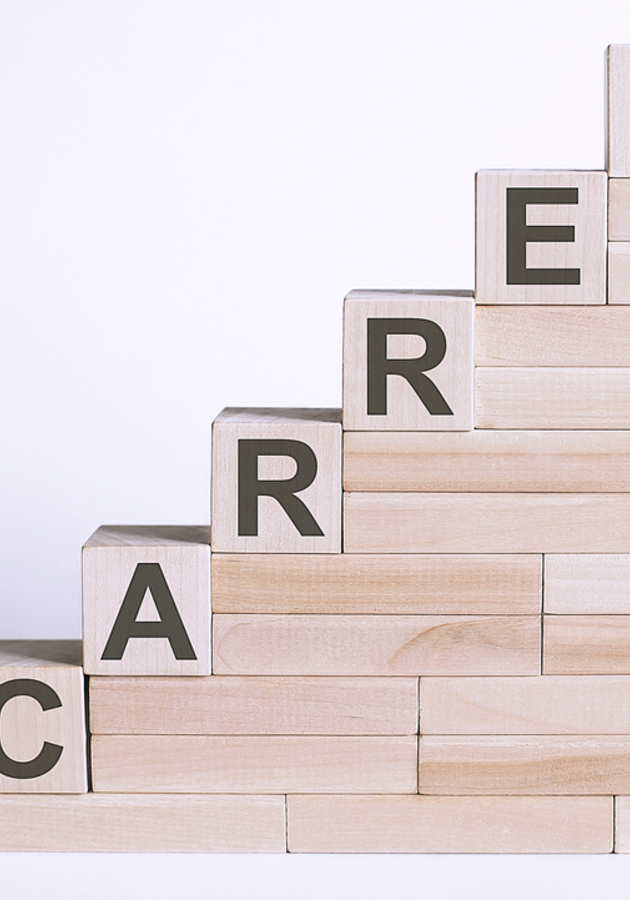What are your ways of getting through a tough time? Perhaps it is engaging in physical activities, psychotherapy, or expanding your social network. Have you ever tried writing about the things that upset you? According to James Pennebaker and Joshua Smyth, this can help you treat a variety of physical and mental health problems, such as anxiety, depression, and post-traumatic stress disorder. In their book ‘’Opening Up by Writing It Down,’’ first published in 1990, they discover why and when you should engage in expressive writing. So, get ready to learn how you can heal with the help of only a pen and paper!
The polygraph confession effect
In the early 1980s, one of the authors of the book, James Pennebaker - a social psychologist interested in the joy of talking, lie detection, and the role of self-understanding in influencing the mind-body connection - had to give a series of lectures on emotion and health to FBA, CIA, and other secret agency’s polygraphers. He spent several evenings talking with them about their jobs and, particularly, about the phenomenon called the polygraph confession effect. One of the most memorable illustrations of this effect came from a polygrapher from San Francisco who gave a polygraph exam to a 45-year-old bank vice president suspected of embezzlement. As you may know, polygraph exams are used in law enforcement to determine whether a suspect is telling the truth, and are based on the assumption that biological stress levels will increase in case suspects are trying to deceive their interrogators, and that was the case with the bank vice president. Finally, after repeated questions and prodding, he confessed that he embezzled over $74,000 over a six-month period.
After the bank president signed a written confession, he was polygraphed again, which was a standard procedure to make sure that his confession wasn’t deceptive. Interestingly, this time, his overall physiological levels were low - his hands weren’t sweaty, his breathing was slow and relaxed, and his heart rate and blood pressure were low. So, what happened there? Why was he so calm even though he knew he would be sentenced to prison? Why did he, at the end, warmly shake the polygrapher’s hand and thank him for all he had done?
When we keep a secret, we must consciously hold back our thoughts, feelings, or behaviors, which can affect our body not only in the short term by, for instance, increasing precipitation or faster heart rates but also in the long run by increasing the likelihood of illness and other stress-related physical and mental problems. Once we reveal a secret, even when the consequences of revelation are serious, as in the case of a bank vice president, the biological stress of keeping it reduces almost immediately, and over time, our overall stress levels drop, as well.
The invention of the expressive writing approach
The discovery of the healing power of expressive writing was mainly a ‘’result of a series of serendipitous research findings.’’ Early in his career, Pennebaker conducted a health survey in which students had to complete a 12-page questionnaire about their childhoods, food and color preferences. One of the questions was related to traumatic sexual experiences - it simply asked the examinees to circle ‘’yes’’ or ‘’no,’’ depending on whether they had a traumatic sexual experience before the age of 17. And it turned out that asking this question was crucial to later discovering the connection between health problems and being silent about traumas. About 10% of the 800 college women who completed the survey answered affirmatively to the question, and they overall did not differ from others in terms of age, social class, race, or even number of close friends. The striking fact was that these women experienced more health problems than any other group the researchers had ever seen.
Another study, conducted soon after the above-mentioned one, showed that respondents who reported 20 or so-year-old sexual trauma were hospitalized nearly twice as often compared to those who did not. Crucial to mention is that the majority of those who experienced trauma admitted that months and even years had to pass until they discussed traumatic experiences with others. Naturally, having nearly any kind of traumatic experience is detrimental to one's health - but these studies showed that if you keep it a secret, the odds that you will have a health problem are substantially increased.
After concluding that secrets can harm one’s health, Pennebaker and Smyth wanted to conduct another experiment that examined whether exposing traumatic experiences would decrease the number of respondents' future visits to the doctor. As it was a bit complicated to find people who would talk about their darkest secrets, as well as those who would listen about them, they decided to divide respondents into two groups where one would write about traumatic experiences and the other about superficial and irrelevant topics for 15 minutes on four days. The results of the study were fascinating - the number of visits to the health center decreased for the group that had to write about emotional upheavals. So, once again, it turned out something important was happening when people wrote about stressful events.
Try moving closer to spiders while talking about them
The relationship between talking about upsetting experiences and health is not a recent discovery - a famous Austrian physician, Josef Breuer, used what he called ‘’the talking cure’’ to treat patients suffering from symptoms such as paralysis, blindness, or deafness that had no apparent physical cause. Maybe you have heard about one of his most prominent cases - Anna O, who dealt with many problems ranging from refusal to drink liquids to partial paralysis on the right side of the body. Breuer based his treatment of Anna on hypnosis, during which he required her to talk about early experiences with each of her symptoms. For instance, in one session, she remembered how angry and disgusted she felt when seeing a dog drink water from a glass. You can guess what happened after - amazingly, the mere talk about the cause of the symptoms cured it, and Anna overcame her refusal to drink liquids.
So far, we have learned that confronting traumas is beneficial - physiologically and psychologically. One of the questions that remain unanswered is what brain-related changes could explain the benefits of confession and, hence, expressive writing. An experiment conducted by Mathew Lieberman and his colleagues at UCLA can answer this question.
Using functional magnetic resonance imaging (fMRI), Lieberman wanted to see which parts of the brain were involved when participants faced one of their greatest fears - spiders. They were divided into two groups - the one that had to try to move closer to spiders while talking about their fears of them and the one that would do that while being silent. It turned out that talking helped the first group and enabled most participants to move closer to spiders compared to those from the second group. And what did the scan say? They showed that part of the brain involved in effortful control over our emotional states - the right prefrontal cortex - ‘’turned on’’ when examinees talked about their fears while parts of the brain related to strong negative emotions were ‘’turned off.’’ ‘’In other words,’’ the authors note, ‘’putting our deeply emotional experiences into language and words facilitates our brain’s capacity to help us manage our emotional states.’’
When is writing sometimes better than talking?
In the previous sections, we have mostly mentioned how talking about our thoughts and emotions can be beneficial. Where is writing in all this? Why do the authors advocate for the expressive writing technique and not for relieving the burden of secrets by talking?
As much as keeping secrets is dangerous, exposing them can be, too. In other words, ‘’people often keep secrets for very good reasons or in response to tremendous social pressures,’’ the authors say. Consider the case of Laura, who did not tell anyone her stepfather was molesting her out of fear she would lose her mother or that she might not believe her. Furthermore, if she had exposed her secret, some people in her surroundings would probably stigmatize her.
Talking about painful experiences can be burdensome for listeners, too. They might avoid contact with us in such a case because they don’t know how to respond or comfort us properly. Furthermore, choosing to heal from the trauma by talking about it can lose its benefits when we don’t properly choose our audience. Depending on them, we can unconsciously divulge our deepest thoughts and feelings and alter interpretations of events. The audience can also affect the way we understand traumas. Imagine you are talking with a religious person about your stressful experiences - they would probably lead you to interpret them within the religious value system, and, you might, therefore, for instance, address acceptance of hardships as in the Book of Job.
‘’One reason that writing about upsetting experiences is a good coping strategy is that it is safe,’’ the authors note. If you try to explore your thoughts and feelings through it, you can be completely honest with yourself. Moreover, you don’t have to be afraid of judgments or distorted perceptions. Writing, however, has its disadvantages - it can be a slow and painful process, and not everyone finds it easy to express themselves on paper.
Putting expressive writing into practice
When engaging in an expressive writing technique, the main rule you need to stick to is that there are no rules. To enjoy the benefits of writing, you need to find what works best for you since there is no universal technique that works for everyone. Simply try different ones and monitor your behavior, sleep, mood, and overall health while doing so.
If you don’t know how to start, there are some general guidelines you can stick to that proved helpful in an array of studies. First of all, writing is rewarding when dealing with past traumatic experiences and current or recent bothersome upheavals. Second, through writing, you can evaluate how your life is going. As the authors note, ‘’Taking a life inventory can help people reevaluate their goals, values, emotions, relationships, and who they are.’’ Finally, if you are obsessed with a particular topic, writing about it can be a way for stilling the mind.
Writing about terrible experiences doesn’t necessarily bring relief. If you feel that you are not ready to put them on paper or that writing makes you even more distressed, stop. As mentioned earlier, you must be your own judge and see what works best for you. Also, your writing doesn’t need to revolve only around negative experiences - you can use it to learn more about emotions, relationships, and thought patterns by writing about emotional topics.
How often and for how long should you write? Again, it depends on you. You can try doing it for 15 minutes for at least three or four consecutive days (as participants in one of the first studies about expressive writing did). Once you begin, write without stopping and minding the spelling, style, and grammar. You can write longhand, type on a computer, or talk into a tape recorder. Your topic can be the same on all days or different on each day you write.
Finally, don't use writing as a substitute for action or some other avoidance strategy, nor a replacement for psychological or medical treatments. Always bear in mind that revealing your deepest secrets and feelings is not a magical cure that will make all your troubles and aches go away, but rather a ‘’form of ongoing preventative maintenance’’ that will give you a better understanding of your feelings and the situation you deal with.
Final Notes
When traumas and distressing experiences occur, don’t repress your need to express yourself. The human need to share their experiences is almost as old as humanity, and, as Smyth and Pennebaker show, we can seriously suffer if we neglect it. Therefore - write, talk, paint, play music, or choose whatever medium that suits you to follow the centuries-old tradition and move closer to healing.
12min Tip
Don’t be discouraged if you are sometimes a little depressed or sad immediately after writing. Just wait until these feelings pass, and you will feel relief, happiness, and contentment.





























